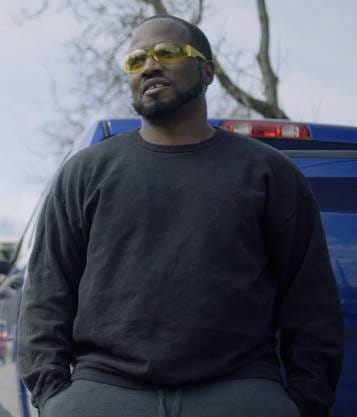The Challenge: Primary Sclerosing Cholangitis (PSC)
At the age of 25, Wayne Livingston was diagnosed with primary sclerosing cholangitis (PSC), an autoimmune disorder that causes inflammation in the liver. That inflammation can lead to cirrhosis.
“The doctors told me I had seven to 15 years to live,” Wayne says, “I was living every day like it was my last, because I didn’t know how progressive this disease was going to be.”
Wayne continued living his life, unsure of where his disease would lead him. He started a landscaping business and married his wife, Tasha, who has been by his side throughout this entire process.
“Because I was diagnosed before meeting her, I told her that I didn’t know what would happen. It was up to her whether she wanted to take this journey with me or not.”
The Path to Living Donation at UPMC
Wayne’s condition was stable for several years. But as his disorder progressed, he started to experience weight loss, fatigue, and his eyes were yellow with jaundice.
His doctor told him he would need a liver transplant, but that the wait could take years. So, Wayne’s doctors talked to him about another option – a living donor transplant. By identifying a living donor, Wayne could receive a transplant sooner and before his disease progressed to a more severe stage. During a living-donor liver transplant, a surgeon removes a portion of a living donor’s healthy liver and transplants it into the patient with liver disease.
Meanwhile, Wayne was still trying to keep his illness a secret.
“I didn’t want anyone to cry over me for what I was going through. So, I have these yellow glasses I would wear when I would go out. That way, no one could see the yellow in my eyes.”
But through the UPMC Living Donor Champion Program, Wayne learned about the importance of sharing his story if he wanted to find a living donor.
Desperate to help her husband, Tasha became Wayne’s Living Donor Champion and supported him throughout the whole journey.
A Champion is any person who can take on the task of finding a donor, so that you can focus on your health. The UPMC Living Donor Champion Program offers patients and their families resources to help them find a living donor.
As his Champion, Tasha took on the task of finding Wayne a living donor, allowing him to focus on his health. She shared his story far and wide, searching for a willing and suitable match.
The Solution: A Friend Becomes his Living Donor
When Rina met Wayne, she knew immediately that they would become friends. He had just started mowing her lawn and what she remembers most is how easy the conversation was.
“That first meeting, we had an easy conversation. More than just the weather. I really just got good vibes,” Rina says.
They became fast friends as he regularly came to mow their lawn, wearing his yellow glasses. Rina had no idea how sick Wayne felt or that he would need a liver transplant. With his health continuing to decline, he knew he couldn’t keep working, so he told Rina he would only be able to mow her lawn through the end of the summer. He explained that he was going to need a liver transplant.
When he said those words, Rina was shocked. She had no idea that his condition was that bad. She had been considering becoming a non-directed donor for a child in need, but after hearing Wayne’s story, her plans changed.
“Here was a person that I knew personally who needed my help. So, during that same conversation, I told him: yes, you can have my liver.”
Wayne and Rina were overjoyed to find that they were a match.
“The day of surgery, five minutes before they were going to put me under anesthesia, I completely broke down,” Wayne says, “All the emotions from the last ten years just came upon me and I was scared.” That day, they underwent a successful living-donor liver transplant.
The Result: A Closer Bond Than Ever
“The biggest thing, when I first was able to get up and move around, was walking to the bathroom and looking at my eyes,” Wayne says, “I just said, wow! It worked.”
“The pain wasn’t a big deal. Fatigue was the hardest thing for me,” Rina says.
Their recovery went well, and after a few months, they felt like they had grown closer than ever.
“Rina and I always had a rapport before surgery, but now she has become my sister.”
Both Wayne and Rina remain hopeful for anyone still waiting for a liver transplant, knowing that there are donors waiting to step forward.
“My advice to someone facing this journey is to have hope,” Wayne says.
“The human condition is to want to help,” says Rina, “I’m not special. And many, many more will be moved to make this decision.”
Wayne and Rina’s treatment and results may not be representative of all similar cases.

















